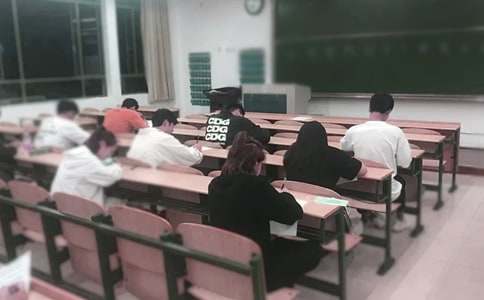- 相關(guān)推薦
2016年全國英語等級考試(PETS5)模擬練習題及答案
REPEAT THE TEXT

You now have 3 minutes to check your answers to Questions 1 - 10.
That is the end of Part C. You now have 5 minutes to transfer all your answers from your test booklet to ANSWER SHEET 1.
That is the end of Listening Comprehension.
SECTION II: Use of EnglishRead the following text and fill each of the numbered spaces with ONE suitable word. Write your answers on ANSWER SHEET 1.
Children who grip their pens too close to the writing point are likely to be at a disadvantage in examinations,
(1) _____ to the first serious investigation into the way in which writing technique can dramatically affect educational achievement.The survey of 643 children and adults, aged from pre-school to 40-plus, also suggests
(2) _____ pen-holding techniques have deteriorated sharply over one generation, with teachers now paying far
(3) ______ attention to correct pen grip and handwriting style.Stephanie Thomas, a learning support teacher
(4) ______ findings have been published, was inspired to investigate this area
(5) _______ she noticed that those pupils who had the most trouble with spelling
(6) ______ had a poor pen grip. While Ms. Thomas could not establish a significant statistical link
(7) ______ pen-holding style and accuracy in spelling, she
(8) ______ find huge differences in technique between the young children and the mature adults, and a definite
(9) ________ between near-point gripping and slow, illegible writing.People who
(10) ______ their pens at the writing point also show other characteristics
(11) ______ inhibit learning,
(12) _______ as poor posture, leaning too
(13) ______ to the desk, using four fingers to grip the pen
(14) ______ than three, and clumsy positioning of the thumb (which can obscure
(15) ______ is being written.Ms. Thomas believes that the
(16) ______ between older and younger writers is
(17) ________ too dramatic to be accounted for simply by the possibility that people get better at writing as they grow
(18) ________. She attributes it to a failure to teach the most effective methods, pointing out that the differences between
(19) _______ groups coincides with the abandonment of formal handwriting instruction in classrooms in the sixties. "The 30-year-olds showed a huge range of grips,
(20) ________ the over 40s group all had a uniform 'tripod' grip."
SECTION III: Reading Comprehension
Part ARead the following texts and answer the questions which accompany them by choosing A, B, C or D. Mark your answers on ANSWER SHEET 1.
Text 1
In recent years, there has been a steady assault on salt from the doctors: salt is bad for you ? regardless of your health. Politicians also got on board. "There is a direct relationship," US congressman Neal Smith noted, "between the amount of sodium a person consumes and heart disease, circulatory disorders, stroke and even early death."Frightening, if true! But many doctors and medical researchers are now beginning to feel the salt scare has gone too far. "All this hue and cry about eating salt is unnecessary," Dr. Dustan insists. "For most of us it probably doesn't make much difference how much salt we eat." Dustan's most recent short-term study of 150 people showed that those with normal blood pressure experienced no change at all when placed on an extremely low-salt diet, or later when salt was
reintroduced. Of the hypertensive subjects, however, half of those on the low-salt diet did experience a drop in blood pressure, which returned to its previous level when salt was reintroduced."An adequate to somewhat excessive salt intake has probably saved many more lives than it has cost in the general population," notes Dr. John H. Laragh. "So a recommendation that the whole population should avoid salt makes no sense."Medical experts agree that everyone should practice reasonable "moderation" in salt consumption. For the average person, a moderate amount might run from four to ten grams a day, or roughly 1/2 to 1/3 of a teaspoon. The equivalent of one to two grams of this salt allowance would come from the natural sodium in food. The rest would be added in processing, preparation or at the table.Those with kidney, liver or heart problems may have to limit dietary salt, if their doctor advises. But even the very vocal "low salt" exponent, Dr. Arthur Hull Hayes, Jr. admits that "we do not know whether increased sodium consumption causes hypertension." In fact, there is growing scientific evidence that other factors may be involved: deficiencies in calcium, potassium, perhaps magnesium; obesity (much more dangerous than sodium); genetic predisposition; stress."It is not your enemy," says Dr. Laragh. "Salt is the No. 1 natural component of all human tissue, and the idea that you don't need it is wrong. Unless your doctor has proven that you have a salt-related health problem, there is no reason to give it up."
【全國英語等級考試(PETS5)模擬練習題及答案】相關(guān)文章:
全國英語等級考試pets5詞匯試題及答案09-14
全國英語等級考試(PETS5)詞匯05-18
全國英語等級考試二級模擬練習題10-26
英語等級考試pets5英語運用練習題10-15